News WOSCU
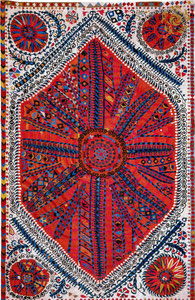
Suzani, bringing happiness to collectors in the USA
Unique suzanis from the Bukhara Emirate of the 18th century, featuring large medallions and inscriptions by Karman (Kermine), evoke a sense of happiness in the hearts of Bruce and Olive Baganz, who cherish them in their collection in the USA.
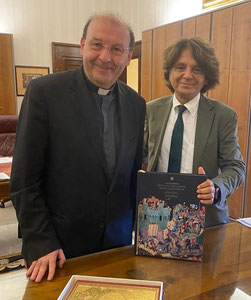
The Vatican Library is planning to engage WOSCU in the study of its archives
The Prefect (General Director) of the Vatican Apostolic Library, Mauro Mantovani, has not ruled out the possibility of close collaboration with WOSCU and the involvement of orientalists from the World Society in studying the archives of one of the unique libraries in the world.
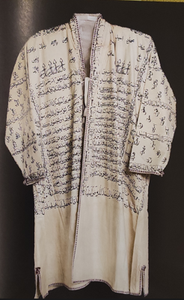
Scientists have proposed that the Center for Islamic Civilization (CIC) and WOSCU study the "contract of Muhammad with the jinn" and the robe of the Quran.
During the VIII Congress of WOSCU, dedicated to the activities of the Center for Islamic Civilization, Deputy Director for Research at the State Museum of the History of Religion, Ekaterina Teryukova, presented a report on a collaborative research project titled "Religious and Domestic Cult Objects from Uzbekistan in the Collection of the Museum of the History of Religion: History, Attribution, Restoration," in collaboration with museum researcher Irina Osmanova.
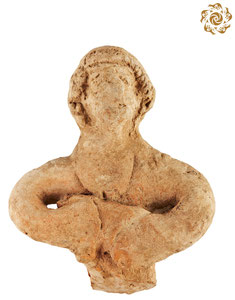
The Goddess Anahit from Old Termez
The first survey of the territory of a large settlement located near modern Termez was conducted in the 1920s. Among the finds was a figurine of the Zoroastrian goddess Anahit.
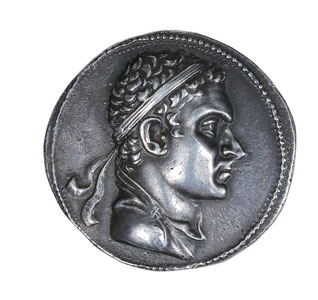
How a Czech surveyor created a numismatic collection in the Tashkent history museum
The history of the acquisition of a numismatic collection in the State Museum of History of Uzbekistan begins with the personal fate of World War I participant Bedrich Augst, a Czech by nationality and a surveyor by profession.
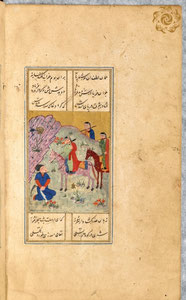
Khatifi - Author of Bestsellers from the Timurid Era
Khatifi holds an important place in the history of Eastern literature, particularly due to his epic works. His poem "Temurnama" not only glorifies Timur but also reflects the spirit of the time when art and culture were under the patronage of powerful rulers.
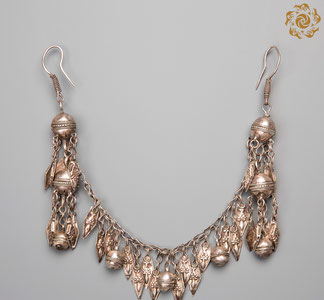
Karakalpak jewelry in the collection of the Russian Ethnographic Museum
Karakalpak jewelry, presented in the Russian Ethnographic Museum, reflects the rich cultural tradition and artistic mastery of this people. Among them, various types of women's pectoral jewelry, earrings, rings and bracelets stand out, each of which carries unique symbolism and meaning.
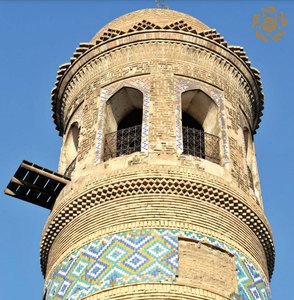
What the Minaret of the Andijan Mosque Tells Us
The Andijan Mosque complex, built in the 19th century, is a significant architectural and historical monument of the region. An important part of this complex is the minaret, adorned with inscriptions.
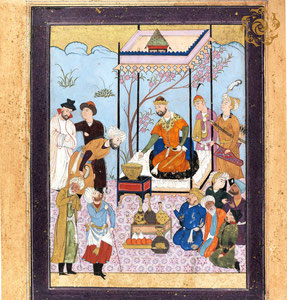
Alexander the Great and the Riddle of the Cup of Jamshid
The miniature "Seven Sages," dated around 1590, serves as an intriguing example of the interaction between various cultures and traditions in the art of that time. It likely depicts Iskandar (Alexander the Great) surrounded by seven philosophers, who may symbolize the wisdom and knowledge of different peoples studying the Cup of Jamshid.
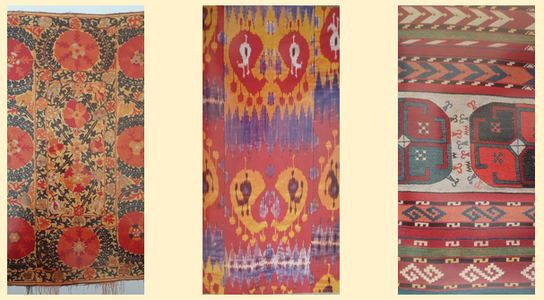
Uzbek and Turkmen Carpets: Unification of Cultures
The presentation by ethnographer Adjap Bairyeva from Turkmenistan, based on the research of art historian Elmira Gul from Uzbekistan, delivered during the VIII Congress of WOSCU, represents an important contribution to the study of carpet traditions in Turkmenistan and Uzbekistan. The comparison of the carpet-making traditions of these two peoples, especially in the context of cultural dialogue, allows for a deeper understanding of mutual influence and the development of applied arts in the region of the Middle Amu Darya.
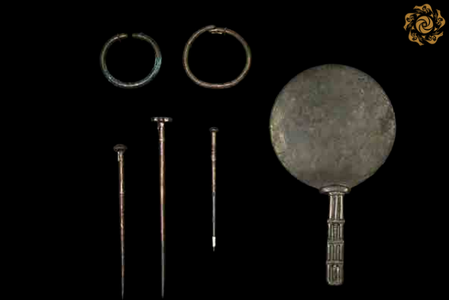
Memory of proto-cities in the collection of the Samarkand Museum
The earliest form of urban culture are proto-cities as precursors of the first state formations, including Jarkutan and Sapallitepa, the emergence of which researchers attribute to the second millennium BC. This period of the culture of Uzbekistan is widely represented in the Samarkand State Museum by ceramics, bronze, stone and bone items.
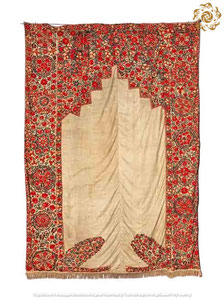
Ruidjo - the mystery of family happiness
Ruidjo is not just an element of textile, but a symbol of tradition and culture, which plays an important role in the life of newlyweds. An embroidered sheet, sewn from four strips of cotton fabric, is a work of art in which every detail matters.
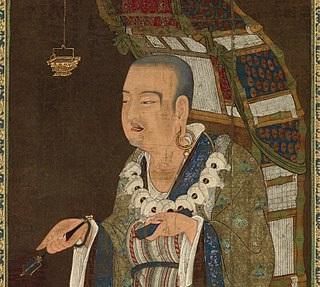
Chinese monk inspired Japanese to study Central Asia
In the 7th century, the Chinese monk Xuanzang traveled through Central Asia to India in search of Buddhist sutras, writing about it in his travel notes “Journey to the Western Region.” Hundreds of years later, it was this work that inspired Japanese explorers in the 19th and 20th centuries to study the region.
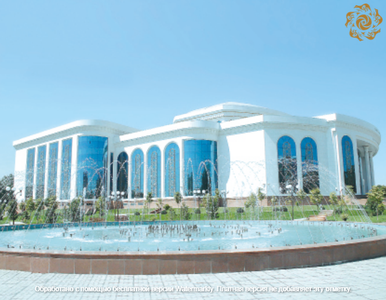
The National Library of Uzbekistan - a journey of one and a half centuries
For more than 150 years of its existence, the National Library of Uzbekistan named after Alisher Navoi has gone through an amazing and difficult path of development, associated with the search and study of unique manuscripts, authorship of outstanding personalities of different eras. In this video, we will be introduced to the history of the remarkable library and its impressive collection.
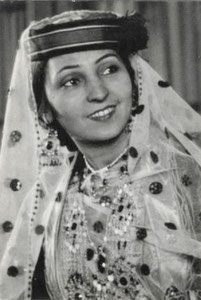
How did costume influence Tamara Khanum’s career?
Tamara Khanum, a famous Uzbek actress and dancer, left a bright mark in the history of Uzbek art. Her concert costume, kept in the State Historical Museum, is not only an element of her stage image, but also a symbol of the cultural heritage of Uzbekistan.
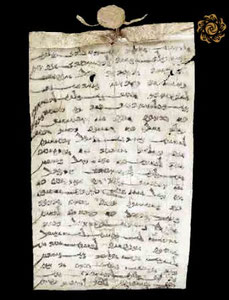
Mount Mug reveals the secrets of the ancient Sogdians
Documents from Mount Mug represent a unique source of information about the complex and dynamic history of the Central Asian Mesopotamia in the early Middle Ages, especially in the context of the struggle against the Arab conquest. These finds, consisting of 76 documents, mostly of Sogdian origin, provide insight into the social, economic and cultural aspects of life in the region during this period.
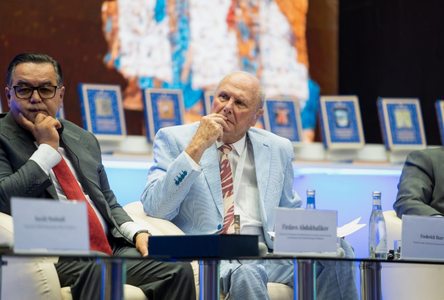
Frederick Starr: "We know very little about Khorezm
Frederick Starr, founder and chairman of the Central Asia-Caucasus Institute (CACI) at the US Foreign Policy Council and WOSCU member, spoke about ancient Khorezm, the contribution to science of Al-Khwarizmi and Abu Rayhan Beruni, and the region’s boundless tourism potential in his report at the VIII Congress of the World Society.
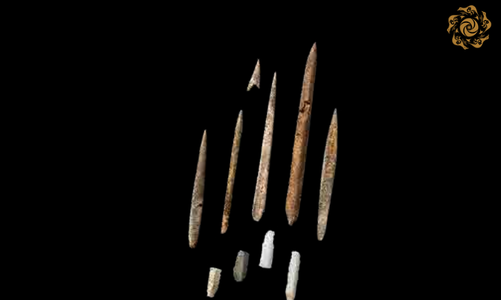
Who did the ancient Khorezmians hunt five thousand years ago?
During the New Stone Age, the Southern Aral Sea region became home to the Kelteminar culture, where hunters and fishermen actively developed this region from the 4th–3rd millennia BC. Finds made at lost sites in the sands of the inner regions of the Amu Darya indicate a developed water system that existed here in ancient times.
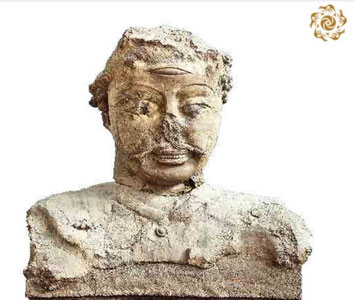
Kova is an ancient center of Buddhist culture
Archaeological excavations on the outskirts of the city of Kuva have uncovered the remains of a Buddhist temple dating back to the 7th century. This discovery proves that Kuva became an important center of religious life in its time.
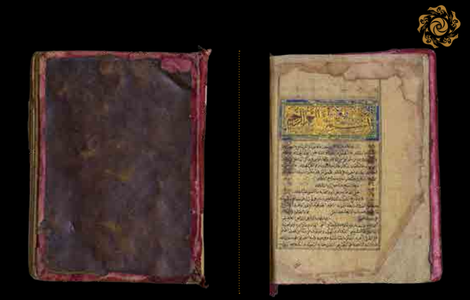
Handwritten monuments of Turkish history in Tashkent's Beruni Institute
The history of Turkey in the collection of the Abu Rayhan Beruni Institute of Oriental Studies is represented by six manuscripts, including "Tarikh" ("History") and "Misbah al-sari wa nuzhat al-kari" ("Lamp for the Traveler and Consolation for the Reader"). These works present important milestones in the history of the Ottoman Empire.
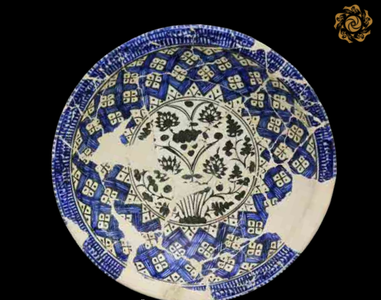
"Chinatown" at the court of Ulugbek
The Chinnikhana Pavilion under Ulugbek became a symbol of cultural exchange, with the tile decorations replicating the style of Chinese porcelain of the Ming Dynasty. This demonstrated the high level of skill of local artists and their ability to adapt foreign influences into their works.
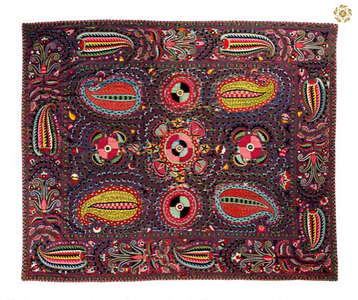
The role of suzani in family rituals
The art of embroidery in Uzbekistan has deep roots and extensive traditions, reflecting the rich cultural history of the region. Embroidery, especially in the form of suzani, occupies a central place in the life of the Uzbek people and plays an important role in various family rituals.
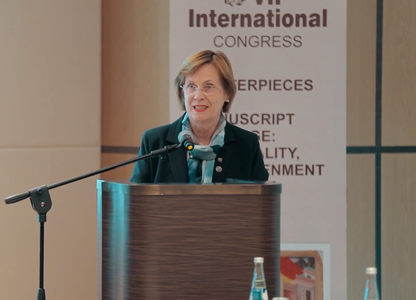
Connecting Europe and Asia through the Hungarian Library
The Oriental Collection of the Library of the Hungarian Academy of Sciences contains 776 manuscripts in the Turkic language, each of which has its own history. And the collection of the library in Budapest itself is unique. Agnes Kelekseni, Head of the Oriental Collection Department, Library and Information Center of the Hungarian Academy of Sciences, spoke about this and much more in her video report.
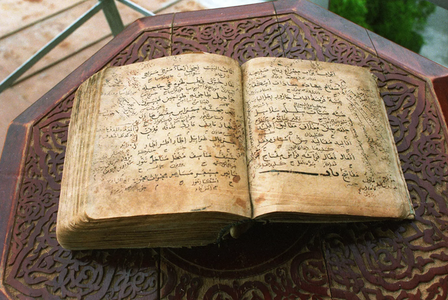
Writing is not just a way to express thoughts on paper
From the 9th and 10th centuries to the beginning of the 20th century, our ancestors created a vast written heritage in Arabic, Persian, and Turkic languages.
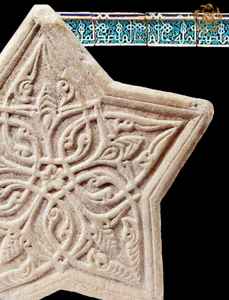
Part of the Ulugbek Madrasah in a museum in Germany
The Berlin Museum of Islamic Art was founded in 1904. Its collection is based on arts and crafts, as well as archaeological artifacts from almost all parts of the Islamic world. One of the artifacts is a star-shaped marble tile that probably decorated the Ulugh Beg Madrasah in Samarkand
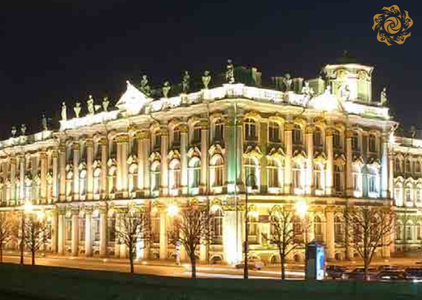
WOSCU and the Hermitage - a decade of cooperation
One of the most famous Russian museums, the Hermitage, has been cooperating with the World Society for the Study, Preservation and Popularization of the Cultural Heritage of Uzbekistan (WOSCU) for almost 10 years. Over these years, dozens of articles have been prepared on various topics related to the history of Uzbekistan, two volumes from the series “Cultural Heritage of Uzbekistan in World Collections” dedicated to the Hermitage collection have been published, and a third volume is being prepared. The fourth is on the way. Pavel Lurye, head of the Central Asia sector of the Hermitage’s Oriental Department, philologist, specialist in ancient Iranian languages, archaeologist, head of the Penjikent expedition and custodian of the Khorezm collection, spoke about this long-term cooperation and the history of the museum’s collection in his report at the VIII International Congress of WOSCU.
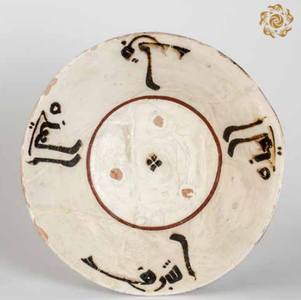
Hadiths and wishes on ceramic dishes
Glazed ceramics decor of the 10th-12th centuries. Excellently reflect the significant changes that came to the culet and art of the Central Asian region as a result of the spread of Islam. Completely new characteristics of Islamic art.
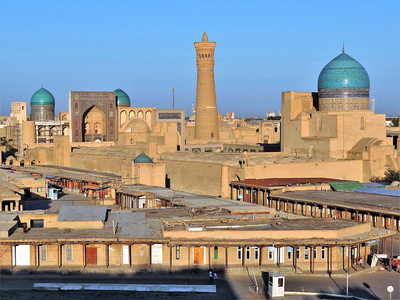
The inscriptions on the monuments of Bukhara are an unread book
All the epochs and each of these dynasties left their marks in the architectural looks of old Bukhara. The bulk of old buildings were lost or overhauled. Nonetheless, the surviving landmarks witnessed various kinds of attitude.
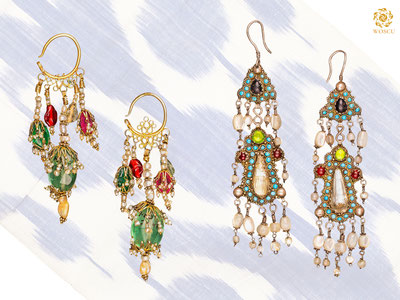
Bukhara jewelers
One of the showcases of the exposition of the State Museum of Applied Arts and History of Crafts of Uzbekistan presents the products of Bukhara jewelers.
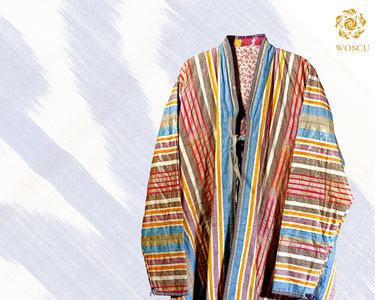
Ichigi - called makhsi or mardona
In the past, making footwear, like any other craft, was something between amateur craftsmanship and genuine art.
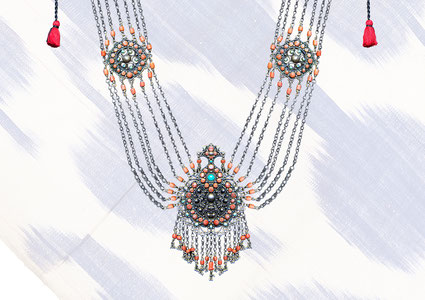
Nozigardon necklaces
The origins of jewelry in Uzbekistan are lost in the depths of millennia. In the 19th century, the largest centers of this craft were Khiva, Bukhara, Samarkand, Karshi, and Kokand.

The mausoleum in Shahrisabz, reminiscent of Shahi Zinda in Samarkand
The "Dar ut-tilavat" complex, comprising the Gumbazi Sayyidan mausoleum, is considered a special "religious-ideological center" within the vast burial ground in Shahrisabz.
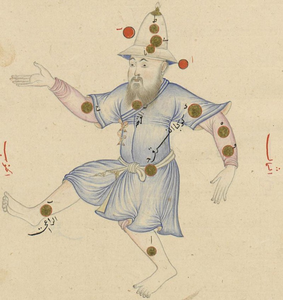
Do you know who translated the Greek names of the stars into Arabic?
As is known, the famous astronomer al-Sufi was born in 903 CE in Rayy and died in 986 CE in Shiraz.
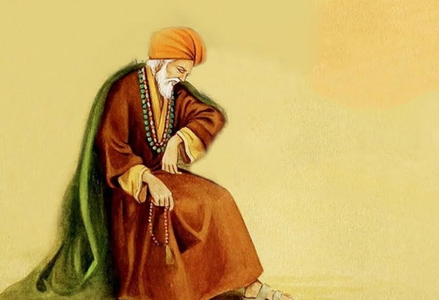
To whom is the manuscript of the work "Tazkirat al-awliya" dedicated?
It is known that the Turkic (Chagatai) language and the Uyghur alphabet, along with Persian, were in constant use among the Timurid and Turkic-Mongol aristocracy of the empire.
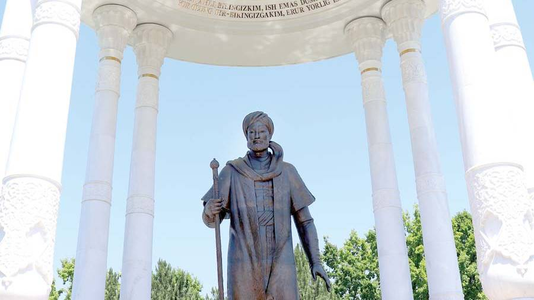
The gems of the National Library of Uzbekistan
The gems of the Manuscript, Unique and Highly Valuable Editions Fund of the National Library of Uzbekistan are the works of Alisher Navoi.
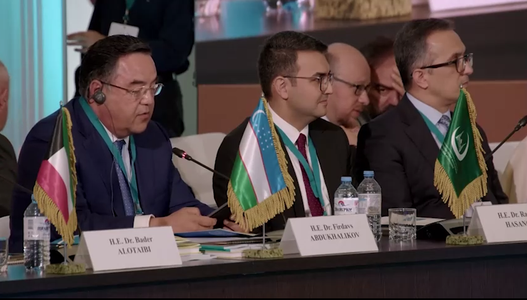
"The Katta Langar Qur'an" finds a prominent place in Moscow's Islamic Museum
Firdavs Abdukhalikov, Director of the Center for Islamic Civilization of Uzbekistan and Chairman of the WOSCU Board, participated in the XX International Muslim Forum "The Path to Peace: Dialogue as the Foundation for Harmonious Coexistence," held in the capital of the Russian Federation, Moscow.
